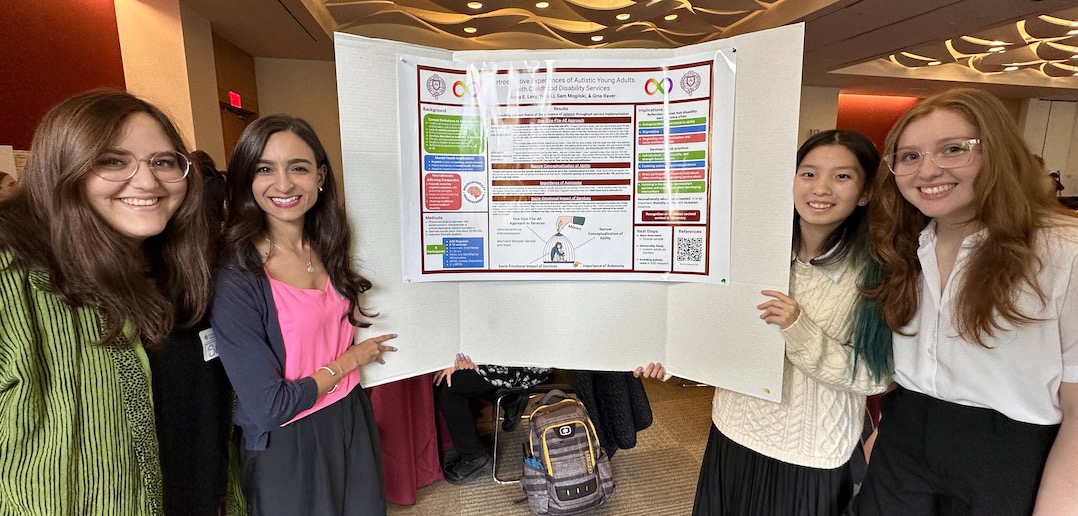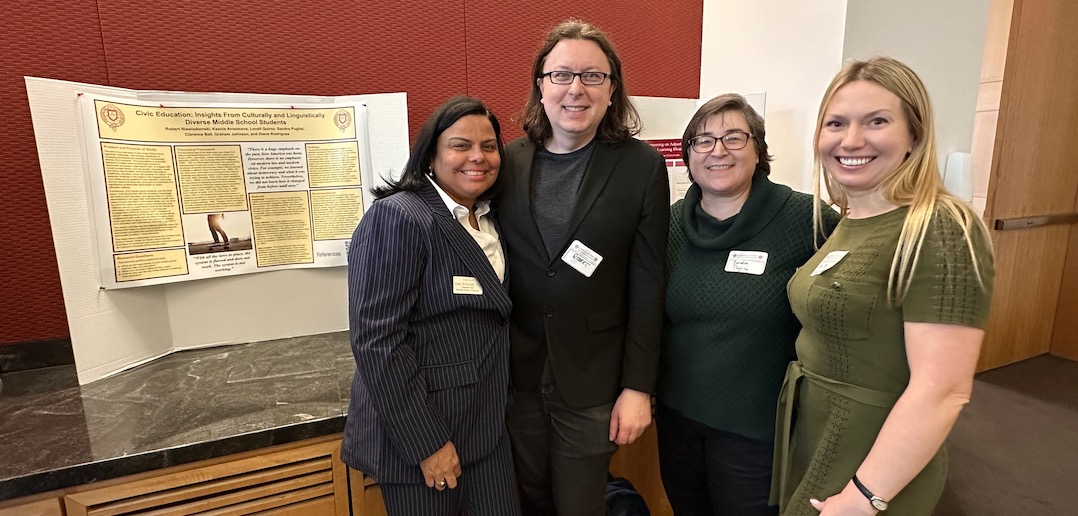“I learned so much, from issues related to disproportionality of students with disabilities in a particular school district, to what motivates students of color to pursue a Ph.D. in school psychology,” said José Luis Alvarado, Ph.D, dean of the Graduate School of Education, in his congratulatory address to the students. “We look forward to seeing your presentations at AERA, AEA, NASP, and all the professional organizations you belong to.”
The annual event started last year, thanks to an idea from a doctoral student. The retreat portion of the event featured speakers and workshops, where students learned how to prioritize their mental health and pursue a career with their doctoral degree. Later in the day, keynote speaker Shaun Woodly, Ph.D., an award-winning educator, professor, and consultant, spoke about the importance of relationships in their work, as well as self-care. He also talked about something deeply personal to him.
“He shared his experience and mistakes he made as a new teacher—using fear in the classroom as a behavior management strategy and how his own upbringing impacted how he viewed student behavior. This led to speaking about … how culture impacts behaviors and our response to behaviors, which in turn impacts how we view and engage in research,” said Annie George-Puskar, Ph.D., assistant professor and chair of GSE’s doctoral planning committee.
Improving Childhood Disability Services for People with Autism
At the end of the evening, students displayed their research posters and shared their findings with guests.
Four doctoral students in the school psychology program interviewed young adults with autism about receiving childhood disability services. They found that the study participants felt like they were stigmatized and that services often felt more like a study hall, rather than individualized support in academic and social skills.
When services are created and research is done on interventions for the community, the autistic voice is often not included, said the team.
“This is another way to get the autistic voice out there and into academic spaces where researchers and service providers can see this information,” said doctoral student Sam Mogilski, adding that all four group members have loved ones who are on the spectrum, and that their team will share their research at the annual American Psychological Association conference this August.

Identifying What Students Want to Learn in Civics Education
Robert Niewiadomski, a doctoral student in the innovation in curriculum and instruction program, presented his team’s research on civics education for middle school students. One of their major findings is that students want to see more critical reflections on current events, including the killing of George Floyd and the Black Lives Matter movement.
“Based on our research, we recommend that classrooms include students’ experiences, their interests and voices, current events, and things that students’ see on social media or mainstream media, and make connections to whatever content is being taught to them in history or social studies classes,” said Niewiadomski, adding that their research was accepted in the International Journal of Educational Reform and will soon be published. “We are going to live in a country shaped by this generation. We want to change our society for the better—not erode it.”

